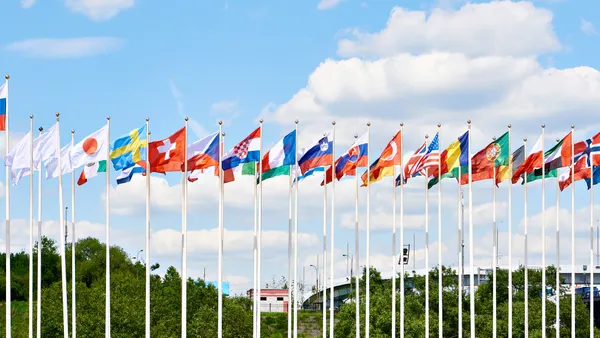Dive Brief:
- The Financial Accounting Standards Board (FASB) has made official a one-year delay in new standards on operating leases and franchisor revenue recognition, allowing organizations to focus on getting through the pandemic.
- For the leasing standard, implementation for private companies and private nonprofits takes effect for fiscal years beginning after Dec. 15, 2021. For public nonprofits, it takes effect for fiscal years starting after Dec. 15, 2019.
- For the new revenue recognition standard, implementation for private companies and nonprofits that haven't yet adopted the policy will begin with annual reporting periods beginning after Dec. 15, 2019.
Dive Insight:
The delay in new lease accounting standards mainly affects private companies and nonprofits. These organizations were scheduled to put the standards in place at the end of this year. Public companies have been implementing the new standards since the end of last year.
Under the changes, operational leases are disclosed on the balance sheet, both as an asset and a liability, in the same way as capital leases. Currently, operating leases are disclosed as expenses on the income statement and in the footnotes to the financials.
The new standards were developed several years ago as a way to shine a spotlight on the risk these leases can pose. Some organizations have thousands of these leases, which can expose them to liability.
FASB has already delayed implementation of the standards for private companies and nonprofits once before.
Revenue recognition
The delay in how franchisors account for revenue applies only to private companies. The new standard is intended to create a unified way of accounting for revenue, regardless of whether it is from sales or services. Franchisors have raised concerns that accounting of initial franchise fees under the revenue-recognition rules is unclear and poses significant implementation costs.
The delay applies to annual reporting periods beginning at the end of 2019. Although many companies have started implementing the change, not all have, and the delay would benefit those who haven't.












